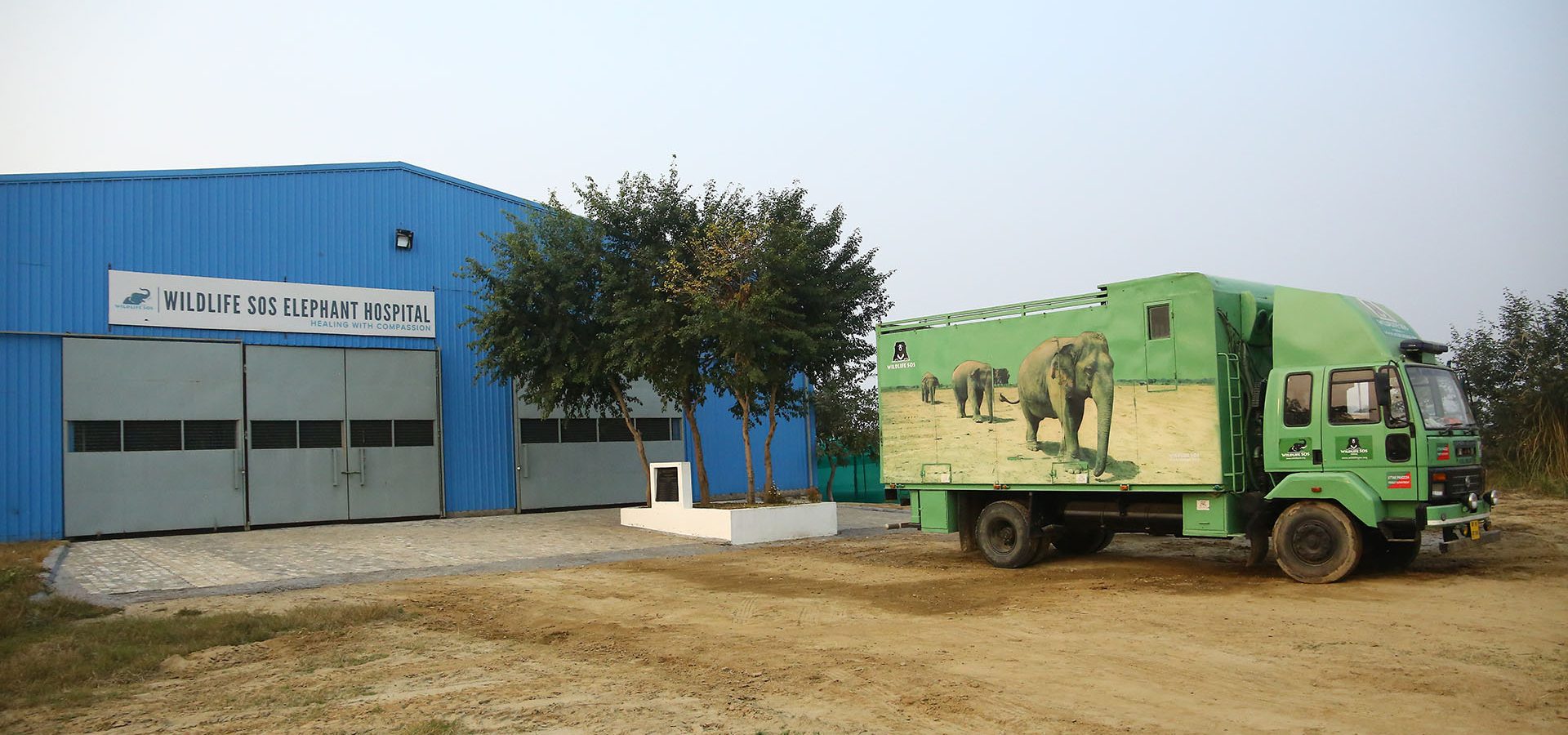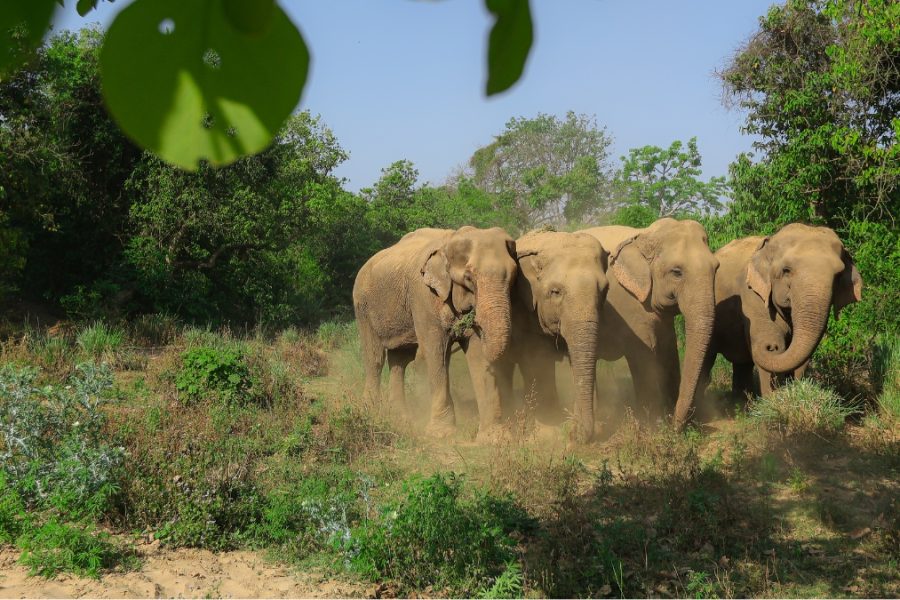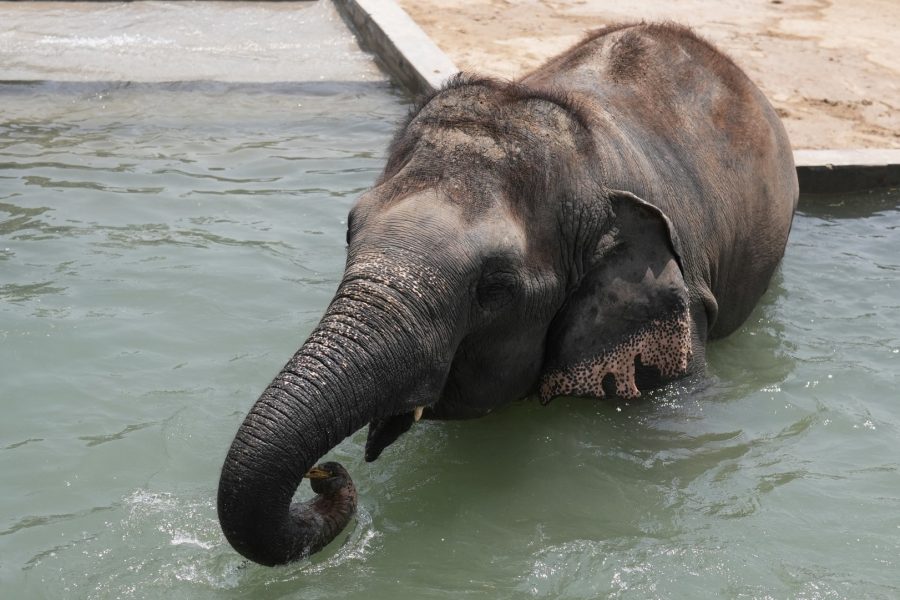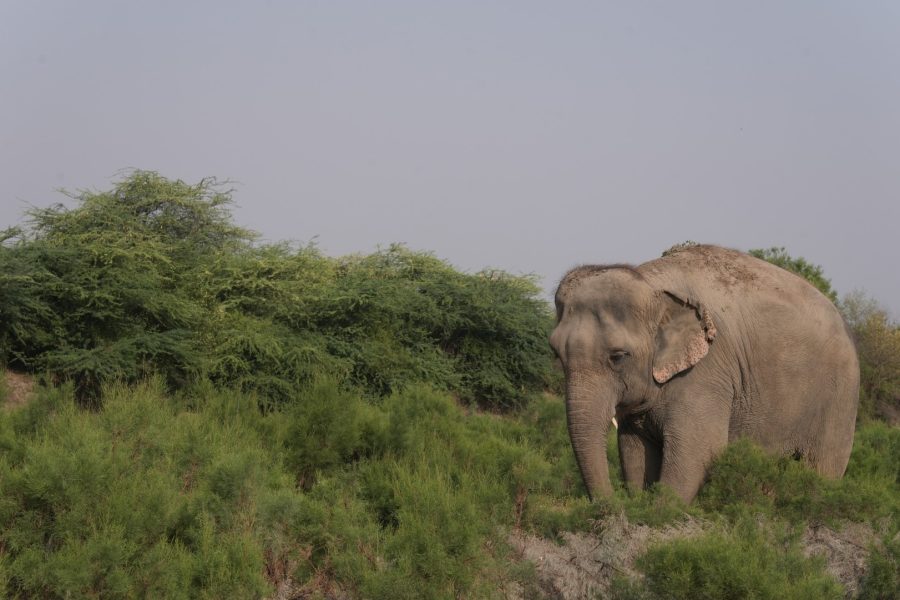Inaugurated in November 2018, the Wildlife SOS Elephant Hospital Campus (EHC) is the first medical facility of its kind in India and serves as a model for improving elephant care worldwide. This facility marked the beginning of providing long-term medical care to rescued elephants with critical health conditions. In the month following its opening, the hospital began the care of its very first resident — Holly. Holly entered the treatment facility as a blind, injured, geriatric elephant saved from a life of “begging” on the streets. Her body was marred by several open wounds, and her weakened ankles prevented her from carrying her own weight.
During her initial months at EHC, Holly was struggling to find rest and refused to lie down on the specially prepared mud beds. While veterinarians at EHC addressed her septic wounds, laser therapy alleviated her joint pain. Throughout her treatment at EHC, the pachyderm stood on all fours, which raised concern among veterinarians. However, the pool present within the centre proved to be a game-changer! Hydrotherapy from the pool water provided respite to her legs as they gained strength after much-needed rest. Holly is just one of dozens of elephants treated by Wildlife SOS every year.
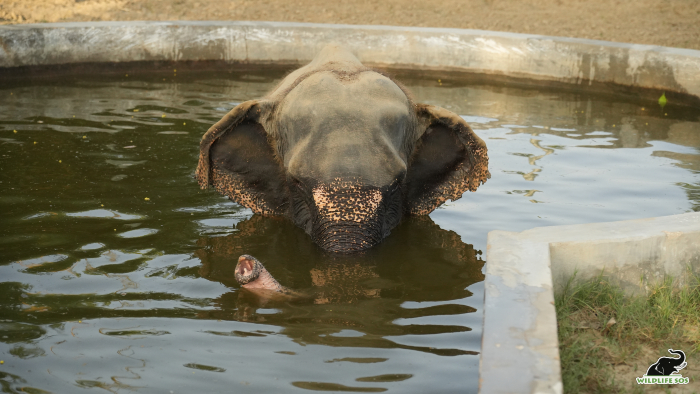
Since Holly’s arrival, the Elephant Hospital Campus has seen tremendous transformation. In the five years of its existence, EHC has provided medical care to several elephants including the pachyderms of Wildlife SOS’ Elephant Conservation and Care Centre. The newest of this lot is Rama, a begging elephant. Rama’s owner brought the malnourished pachyderm to the facility after being directed by the Mathura Forest Department. Since his arrival at EHC, the hospital has been minding his care with essential treatments for the multiple physical difficulties he is suffering from. Laser and hydraulic therapy has been administered to Rama to alleviate pain in his wounded and swollen limbs. A variety of fresh fruits offered to him keep him engaged while the hospital staff tends to the chronic wounds on his ankles and spine.
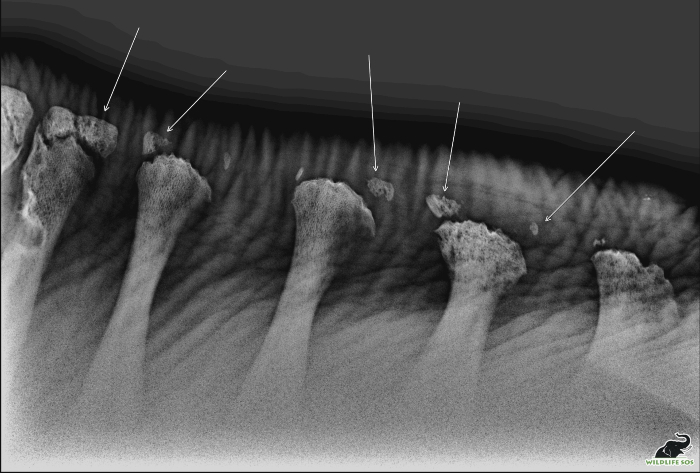
As a wildlife conservation organisation, Wildlife SOS has provided sanctuary to several elephants like Holly and Rama. Along this tumultuous journey, the organisation has witnessed the shared tragedy of captive elephants — their majestic body reduced by weakness and frailty, their graceful gait altered, bony protrusions on their spine and weary ankles as a result of lifting weights beyond what they are naturally capable of. The distressed state of these elephants, who have been abused and kept in isolation all their lives, became a solemn inspiration behind the establishment of India’s first Elephant Hospital.

Through the years, the Elephant Hospital Campus has been a crucial resource to the medical staff and caregivers in managing any kind of emergency. Among the key tools present is a hoist and support structure for elephants on the verge of a collapse. The hospital has equipped itself to provide thorough diagnosis for a host of diseases afflicting elephants. An inbuilt pathology lab has provided veterinarians prompt detection of viral diseases assisting them in taking necessary quarantine measures. The lab also constitutes an automated haematology analyser for blood tests, serum biochemistry analyser for checking serum parameters and trinocular microscope for examining blood smears and faecal parasite assessment.

The hospital campus also has a unique digital weighing scale for elephants, vitals from which helps our team to chart out appropriate caring and treatment plans. Close to the scale is a vast area that has been dedicated to carefully examine elephants and provide them treatments that require space and time. The hospital also boasts of various diagnostic facilities including thermal imaging and ultrasonic massager for therapeutic purposes. Photobiomodulation Therapy Unit also known as laser therapy has helped alleviate joint pains amongst elephants who get treated at the facility. Keeping up with the expansive nutritional requirements of the elephants under its care, the sprawling 50-acres of EHC also accommodates a cold-storage to provide unimpeded sustenance to the resident pachyderms.
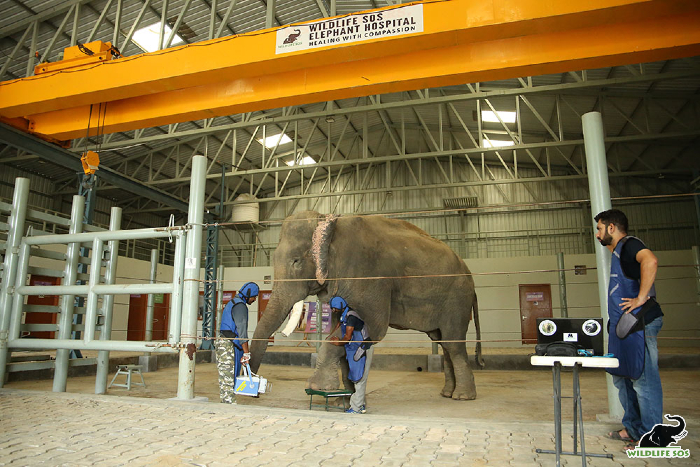
EHC was carefully engineered keeping in mind the provision of round-the-clock veterinary care for its residents. It constitutes a devoted storage area for the veterinary team to store required medicines. The campus also includes a portable x-ray machine, ultrasound machine, foot care tools as well as a residential wing for the caregivers so they can watch over the elephants throughout the day. Along with a hydrotherapy pool, EHC is equipped with wireless digital radiological capabilities and a protected-contact (PC) wall that help with regular check-ups as well as treatments of specific ailments. Over time, EHC has carved its niche in geriatric elephant care, placing a special emphasis on delivering tailored foot care while catering to the mobility needs of elephants. This aspect of elephant healthcare is the most overlooked amongst captive elephants who were under the care of their erstwhile owners.
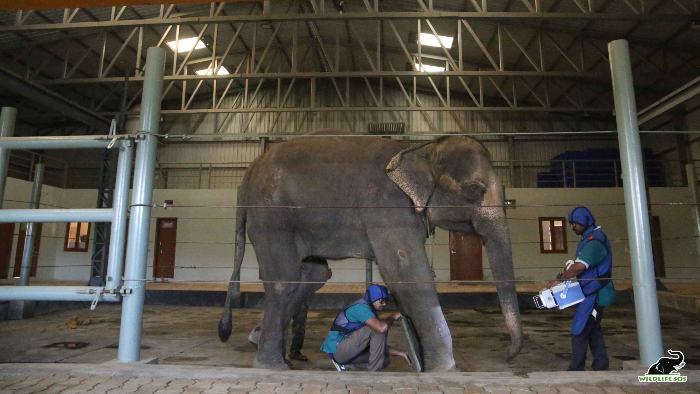
Established with the visionary goal of pioneering an elephant healthcare system that transcends the boundaries of the facility, EHC sets itself apart by possessing wireless and portable medical equipment, allowing not only for on-site treatment of elephants brought to the facility but also enabling the provision of doorstep medical care for elephants in need all over India. As a part of this endeavour, EHC, along with the forest department regularly organises health camps for elephants in various parts of the country. Recently it extended medical facilities in the Pench Tiger Reserve, conducting veterinary health check ups and health assessments on elephants. Wildlife SOS also participated in a similar health camp at Orang National Park in Assam. The camp was conducted in collaboration with the Assam Forest Department and Padma Shri Dr. K.K Sarma where nearly 40 elephants received medical check ups and health care support.
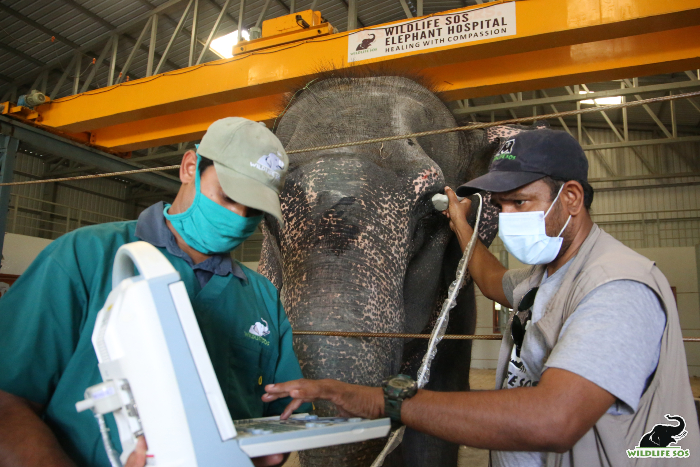
Despite numerous conservation efforts, advanced research in healthcare management for Asian elephants remains a pressing concern. To further the cause of elephant conservation and promote scientific research, EHC has established an independent interpretation centre and observation window. These facilities are open to veterinarians, caregivers, and biologists from across the globe, allowing them to visit and gain firsthand insights into the practicalities of providing veterinary care for elephants.
Enhancing capacity in elephant healthcare management, the EHC has also been proactive in organising a range of training programs, both for its internal staff and external stakeholders. Notably, the Elephant Hospital Campus recently welcomed a training group from the Wildlife Institute of India (WII) to provide participants with valuable insights, exposure, and expertise in the field of elephant veterinary care.
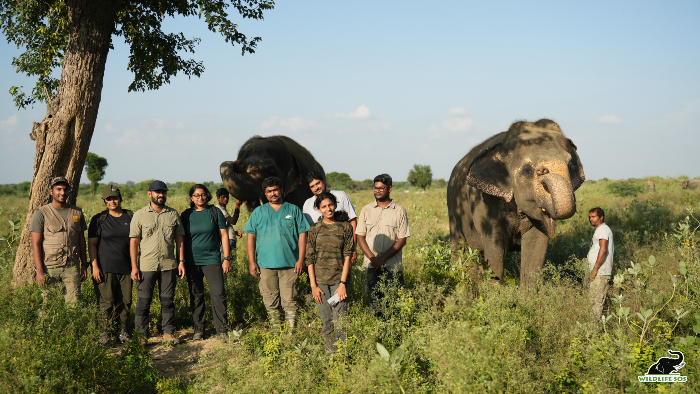
As the number of pachyderm patients continues to grow at the Elephant Hospital, Wildlife SOS is planning for a future which provides research and training for the benefit of India’s over 2,500 captive Asian elephants. Empowering the next generation with the knowledge and expertise required for the intricacies of elephant care, the hospital was strategically constructed in proximity to veterinary colleges in Mathura and universities in Agra and Delhi. This thoughtful planning has not only ensured top-notch healthcare management for the elephants but also positions the facility as a thriving centre for cutting-edge research and comprehensive training in the field of elephant care all over the world.
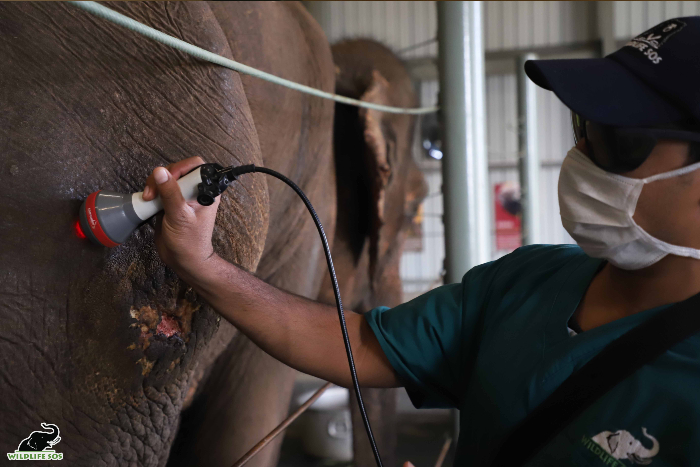
In line with its commitment to staying abreast of the latest technology and approaches in elephant healthcare management, the EHC has conducted various training sessions for its caregivers and veterinarians. A recent highlight was a collaboration between Wildlife SOS and the distinguished veterinarian, Susan Micota, who serves as the Director of Veterinary Programs and Research at Elephant Care International. This capacity-building training program aimed to elucidate the intricacies of elephant care and emphasise what a comprehensive elephant facility should be able to provide for its resident elephants. The program also encompassed discussions with caregivers and veterinarians of Wildlife SOS to ensure their proficiency in operating all equipment related to elephant care and their understanding of diagnostic and therapeutic requirements for these magnificent animals.
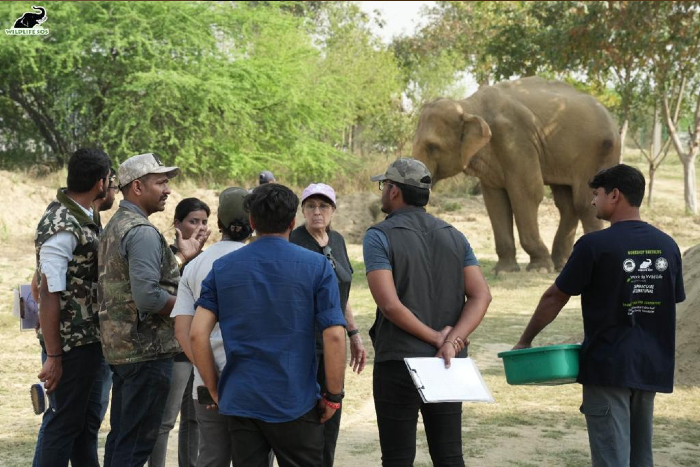
The prescience of designing EHC has included the assurance to heal its residents physically, without ignoring the nuances of keeping the giants mentally healthy. Elephants are highly emotive, intelligent beings, and our team provides them with various enrichments to help them exercise their mind and body. Every enclosure in EHC has dedicated pools for the elephants, and ample space for the pachyderms to take mud baths. Freshly ploughed fields are kind to their worn-out foot pads and ankles while they trudge through the campus for their daily walks. Food-based enrichments include cage feeders and hanging net feeders containing edible treats that motivate the pachyderms to remain physically engaged and mentally engrossed.
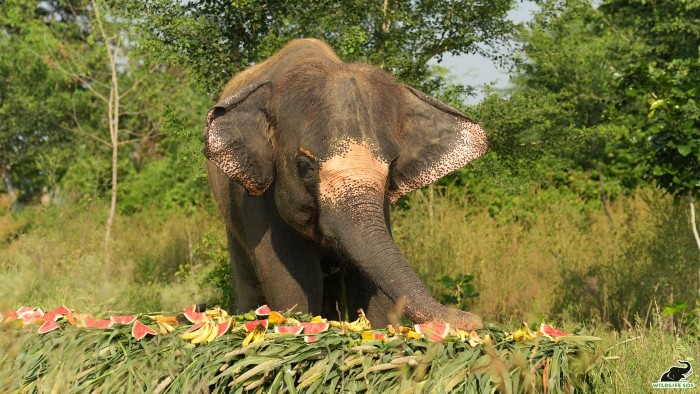
To promote a sustainable and environmentally conscious operation, EHC relies on solar energy for all its operational needs. This allows the treatment unit to not only reduce its carbon footprint, but also in the effective management of energy requirements for its extensive medical facilities. Additionally, Wildlife SOS has implemented a circular economy model within the hospital premises. Elephant excreta is consciously used for planting and propagating seeds within the facility, while leftover food is recycled into natural fertilisers which enriches the soil sustaining a varied flora. This approach minimises waste and demonstrates the organisation’s commitment to environmental sustainability.
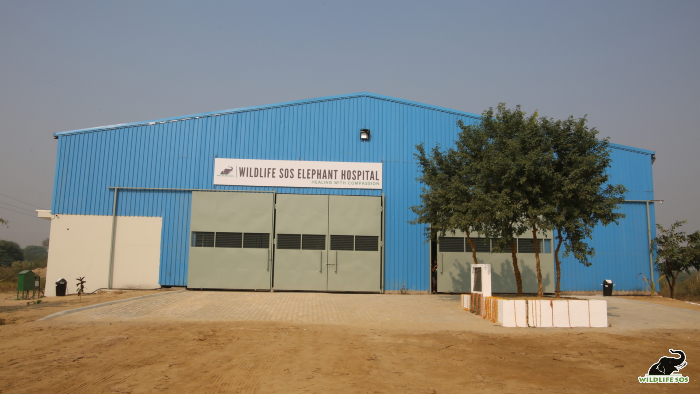
In the decades of experience that Wildlife SOS has in rescuing distressed elephants, the organisation has gained valuable insights in understanding what is required to provide holistic care to these large mammals. EHC is a tangible outcome of this wealth of experience. Elephants that were under neglected captivity underwent the trauma of separation from their maternal herd at a young age, and this was followed by forceful compliance to the commands of their captors. Against the backdrop of the immense suffering captive elephants face on a daily basis as they plod through the tarmac roads of India, EHC stands out as a safe space where these animals can receive long-term humane care.
To support and contribute towards our efforts in managing the comprehensive care of residing elephants, consider making a donation.

